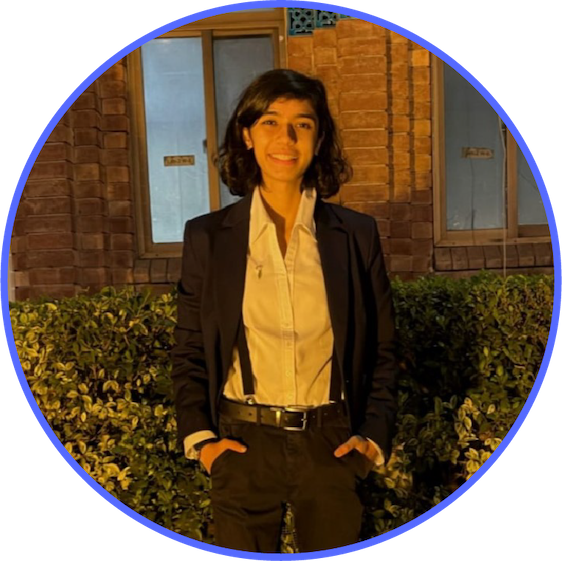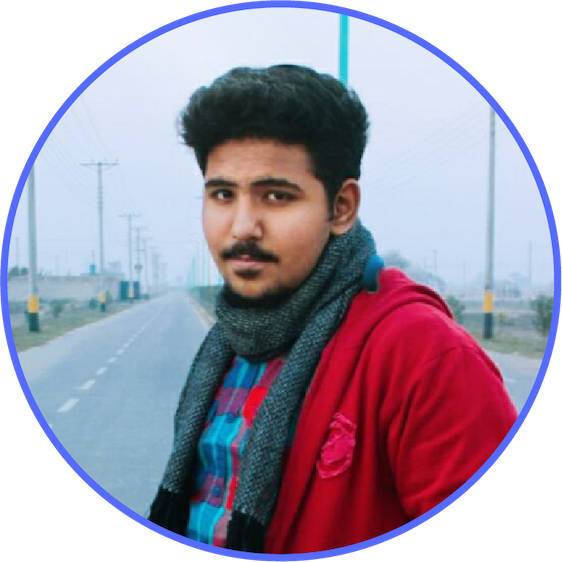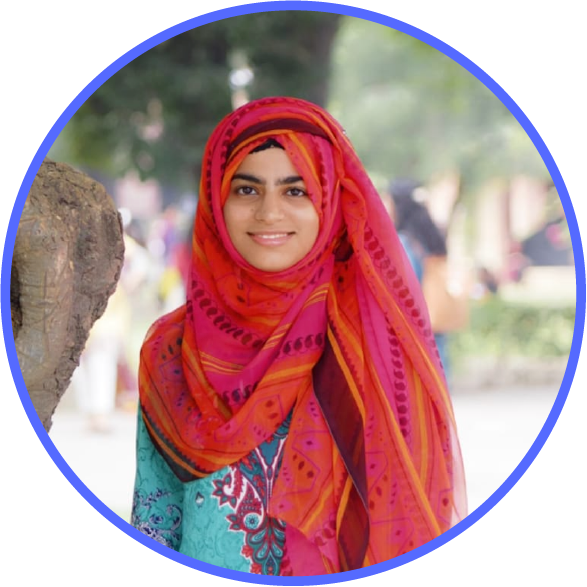Educative + Stacks Technical Writing Workshop: Meet the winners
What is Stacks Pakistan? #
Stacks is a Bitcoin layer that enables decentralized apps and smart contracts. Stacks Pakistan is a community that builds a user-owned internet on Blockchain. For the January 2023 Technical Writing Workshop, Educative Answers teamed up with Stacks due to our shared belief that technical knowledge should be accessible to everyone.
Over the course of 4-weeks, participants drafted, outlined, and submitted an article on Blockchain. Each submitted article underwent two cycles of extensive content and proofreading reviews. At the end of the 4-weeks, the participants' articles were published and 3 winners were chosen based on whose article received the most page views after a set period of time.
Meet our winners!#
We interviewed our 3 winners to learn about their journeys and what the future holds for them. Take a look at their responses below!
Meet our first place winner Izza Mujeeb Ahmad! Izza is a student at the National University of Computer and Emerging Sciences. Her fascination with computers evolved at a very young age.
Our second place winner is Babik Ayaz. He is currently pursuing his undergraduate degree at the National University of Computer and Emerging Science. Babik has his sights set on being a React Native Developer and exploring his talent for writing.
Maida Shahid placed 3rd in this Technical Writing Workshop. She is currently a Junior at the National University of Computer and Emerging Sciences pursuing her Bachelor of Science in Computer Software Engineering.
Hear about their journeys#
Q: What led you to coding and how did you learn to code?
Izza: I was an avid fan of physics and computers from an early age as I've always had an affinity for problem-solving. Initially, my plan was to pursue aeronautical engineering, but everyone kept telling me that I would be great at coding. So, I decided to give it a shot before making a final decision. This was mainly because I was proficient with computers and loved the notion of being able to build things on my own. I distinctly remember having no prior knowledge of coding and searching for, “What exactly do coders do?” After a few searches, I stumbled upon Python and, without any setup, ran my first “Hello World” on my command prompt. Honestly, it was exhilarating. Fast forward three years and I am now in my junior year at university pursuing a degree in Software Engineering and making the most of it.
Babik: The first time I ever took up coding as a serious thing was when I became a student at FAST Lahore. I mostly learned to code by doing assignments, making personal projects, and using open-source documentation and reference materials.
Maida: I began my coding journey in 9th grade with the BASIC programming language. I learned through experimenting with code by writing simple commands on QBasic in a DOSbox VM. I wrote simple programs such as addition, multiplication, and factorials. Later on, I started working on major programming projects with algorithms and time complexities in the C++ language at university.
Q: What do you like about coding?
Izza: There are a lot of things I love about coding. One of them is the liberating feeling it gives you. The fact that you can bring what you envision to reality all by yourself is amazing. For instance, I have always wanted to learn chess and I was able to build it as my first project after learning all the rules. Another thing I love is that this field is never stagnant. Even though I have learned a lot, there will always be more to accomplish. For example, despite being enrolled in a software engineering degree, I still explore data science and machine learning. The possibilities are endless and it’s amazing. Coding makes me more determined, patient, and allows me to challenge myself each day. There are times when your code doesn’t work and you feel like giving up. However, I have learned that there are endless ways to solve a problem, even if you think you’ve hit a dead end. The feeling you get when you finally solve a problem or find a bug is indescribable.
Babik: What I like most about coding is being given a chance to be technical and work on exciting projects. Coding is something that I believe most people should dabble with at some point in their life – it can really help open the mind to new possibilities.
Maida: It is astonishing to witness how a small segment of code has the power to accomplish tremendous achievements and revolutionize the world.
Q: Do you enjoy technical writing?
Izza: Yes, I do. I get pretty excited when I’m explaining something I love. Over the years I’ve realized that I want to share my knowledge with others, and technical writing allows me to do exactly that. Writing is a wonderful outlet to share what I know with the world and make it available to everyone. It challenges me to write in a way that not only I would understand, but also anyone new to the field could understand. This has caused me to look at things in a simpler way.
Babik: I love languages and have always been fascinated with writing. When I got the chance to put my skills to the test during the Educative Technical Writing Workshop, it made me realize my potential as a technical writer. I think technical writing is something that I can excel at in the future.
Maida: Yes, I particularly enjoy the aspect where I explain the code to the reader by utilizing straightforward analogies.
Q: What do you envision for your future in tech?
Izza: I recently started exploring Data Science and I envision myself more involved in this field. Machine Learning, Natural Language Processing, and Computer Vision are a few domains I would love to dive deeper into. They go beyond simple coding and allow you to train machines intelligently. I would love to continue technical writing along with my career, build projects related to these domains, and maybe even open a startup one day.
Babik: I would love to work as a cross-platform React Native app developer, but really any opportunity to work in tech would help me get my foot in the door in such a fast-paced tech world.
Maida: I have a few areas in technology that interest me. Right now, I am pursuing backend web development. But I am also curious about AI because technology is evolving so rapidly.
Take a look at their winning Answers#
Implementing a stack in Solidity arrays by Izza Mujeeb
How blockchain works behind Edge Computing by Babik Ayaz
What is composition in Solidity? by Maida Shahid
Join the Technical Writing Workshop!#
We always welcome new writers to participate in our workshops. If you are interested in taking part in an upcoming Technical Writing Workshop, you can fill out this interest form.
Free Resources


